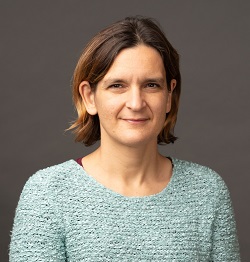
QUANTITATIVE RESEARCH METHODS WORKSHOP
Abstract: We set up an experiment designed to test key predictions of a version of the canonical epidemiological of information transmission (Susceptible, Infected, recovered, or SIR) among maize farmers in Western Kenya. First, to capture information transmission, we introduce a new, easily traceable technology (a blue measuring spoon to help measure out how much fertilizer is used at each maize hole) to random seeds in the network. Second, we experimentally vary the cost of communication (by setting up and subsidizing discussion groups where farmers are encouraged to discuss agricultural topics), and the relevance of the information (by introducing time-limited fertilizer subsidies). We reject two basic predictions of the model: neither intervention (or their combination) leads to greater circulation of the new technology. However, information on the blue spoon, as well as the information on the recommended amount that was delivered with it circulates rapidly in the network in all experimental groups, and appears to spur conversations on other, related topics. This set of results is consistent with a simple modification of the model suggested by recent work in network theory, where we take into account the reliability of the information someone has to share and the reputation costs of being perceived as someone who shares unreliable information.
Esther Duflo is the Abdul Latif Jemeel Professor of Poverty Alleviation and Development Economics in the Department of Economics at the Massachusetts Institute of Technology and a co-founder and co-director of the Abdul Latif Jameel Poverty Action Lab (J-PAL). In her research, she seeks to understand the economic lives of the poor, with the aim to help design and evaluate social policies. She has worked on health, education, financial inclusion, environment and governance. Professor Duflo is the Editor of the American Economic Review, a member of the National Academy of Sciences and a Corresponding Fellow of the British Academy.
This virtual workshop is open to the Yale community. To receive Zoom information, please subscribe to the Quantitative Research Methods Workshop at this link: https://csap.yale.edu/quantitative-research-methods-workshop.
The series is sponsored by the ISPS Center for the Study of American Politics and The Whitney and Betty MacMillan Center for International and Area Studies at Yale with support from the Edward J. and Dorothy Clarke Kempf Fund. This workshop is being hosted jointly with the Leitner Political Economy Seminar.
